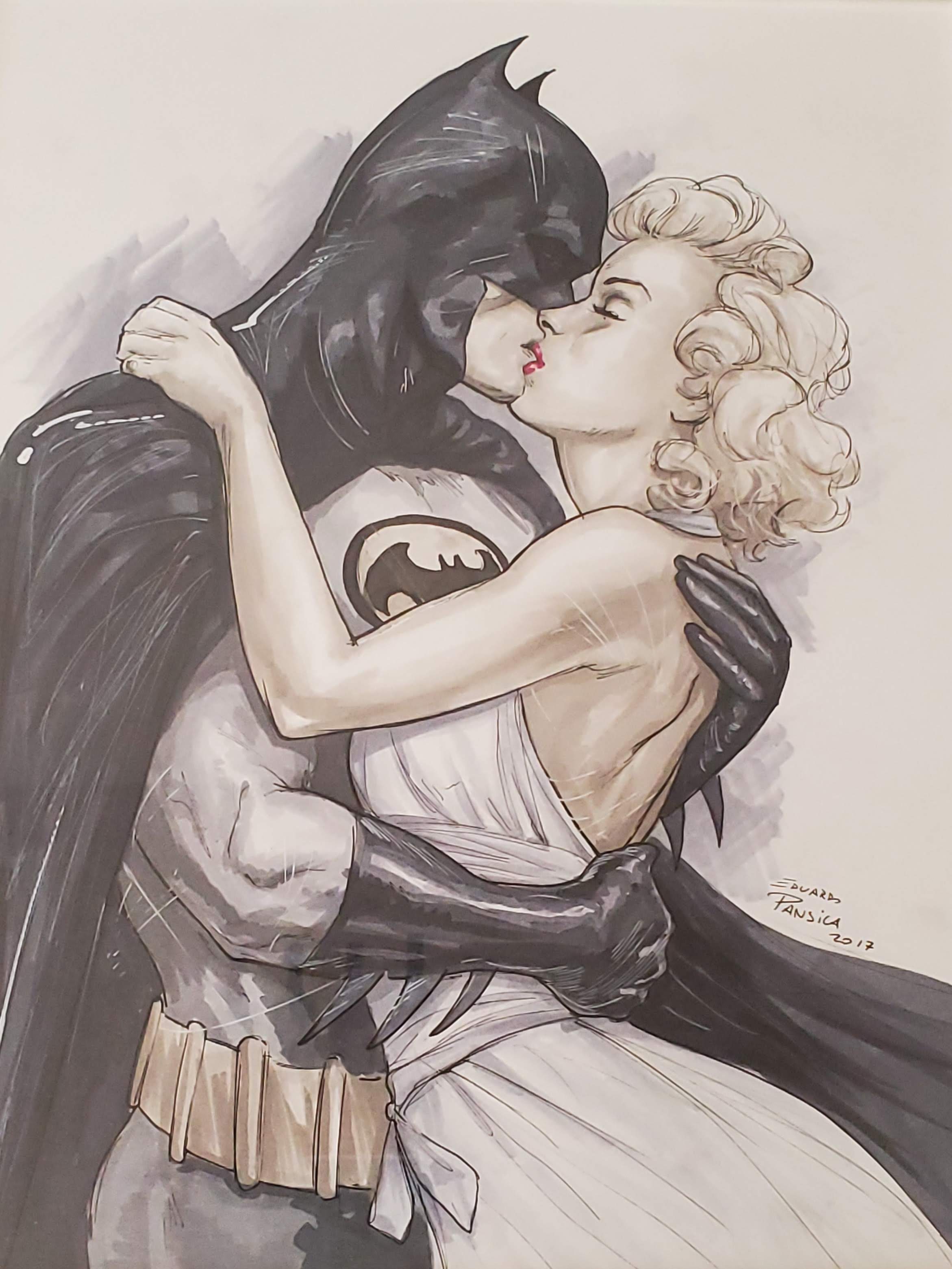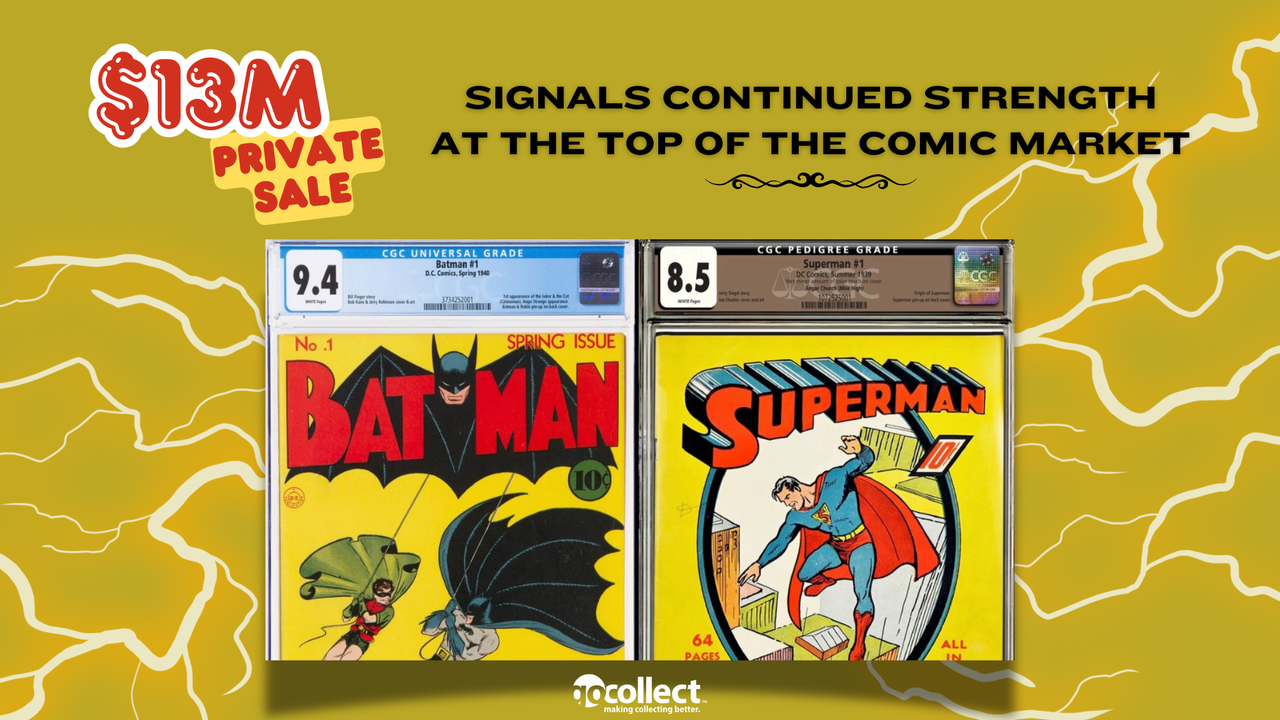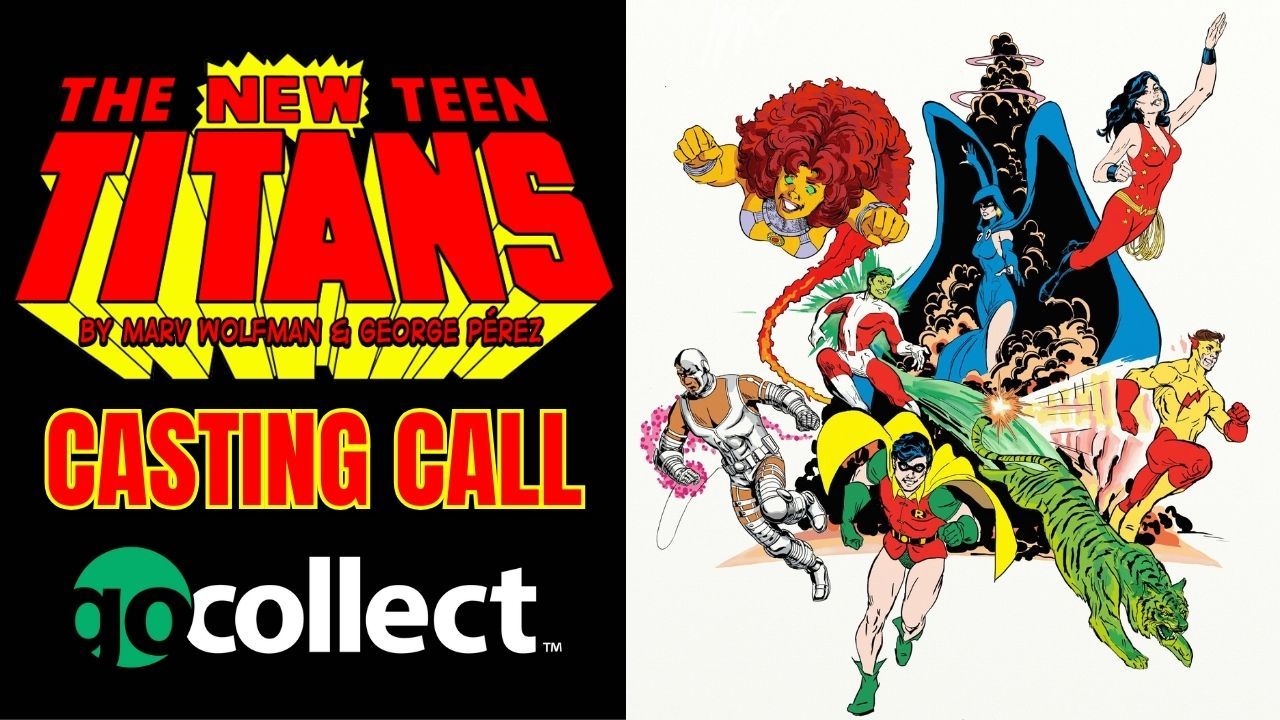 My collecting origin story is probably a bit different from most. I was a book collector for a couple of decades, specializing in modern first editions before I caught the comic collecting bug. I've bought and sold a great many books, mostly first editions, many signed and it has taught me a few things that I think are useful in the world of collecting comics.
My collecting origin story is probably a bit different from most. I was a book collector for a couple of decades, specializing in modern first editions before I caught the comic collecting bug. I've bought and sold a great many books, mostly first editions, many signed and it has taught me a few things that I think are useful in the world of collecting comics.
One thing to keep in the back of your head is that collecting rare books seems to be a hobby in decline. It will never go away mind you, but many of the auctions and dealers that used to feed the hobby have disappeared. Here are a few thoughts on how to make the most of your love of comics. Also, you'll see that I believe comic collecting has some big advantages over rare books.
Learn How to Grade
Condition is everything. Didn't Vince Lombardi say that? No? Well, he should have because it's true. Having experience in grading books has been a huge asset for me in comics. If you are inclined to look at the last sale of a CGC 9.8 copy of Fantastic Four #52 and say to yourself, "wow, I've got a $100,000 book in my collection!", well, yeah, sure you do. There are just over 100 copies graded at 9.2 or better and only five graded at 9.8. The drop off in price below 9.2 is precarious, though obviously even low-grade copies are worth a car payment at least. My point is that it is important to be able to discern the flaws that bring down a grade and to understand the effect this has on value.
A Thought about Signatures

Comic collectors have it so good and they don't even know it. There is no third party company in the book collecting world to witness or authenticate signatures. I have belonged to several First Edition Clubs in my time that sent out a signed first every month to members. I was confident that I was getting what I paid for, but what happens when I go to resell it? There is no certification or encapsulation available. Signatures can command a premium, but in the book world, unless you have an autograph expert on staff, it is caveat emptor. Collecting signatures from my favorite creators is an enjoyable part of the hobby. The fact that I can do so with confidence, even if I'm not the one getting the comic signed, is a huge plus.
It's a Big Market
Let's talk about print runs for a moment. Coming from the book world, I get a kick out of some of the print run comments I have seen. I've been guilty of it myself. Many in-demand comic titles, Batman, Immortal Hulk to name just a couple, have print runs approaching 100,000 units, which would make them huge book releases where print runs are usually in the 5,000 to 20,000 range. (If your name is Stephen King, please disregard this point as it does not apply to you). I once bought a novel with a print run of under 1000 that went on to become the surprise winner of the Pulitzer Prize. That was an exciting day! But keep in mind that if there are 100,000 copies of something out there, it shouldn't be too hard to entice an owner to sell one.
Later Printings

This is a tough one for me. Later printings should be rare. Basically, the publisher is admitting that they screwed up and didn't anticipate demand properly. With books, later printings are to be avoided for the most part. With comics, there is the fact that additional cover art is often available or that the background color of the cover is altered. That creates some demand for collectors that want every variation of a cover. However, it seems to me that publishers have equated later printings with variants. In other words they look at it as a low-risk way to sell more copies of an already in demand issue. I have certainly purchased later printings of comics, but I would resist speculating in this area unless I had the time and inclination to figure out what works and why.
Use Lesser Books to Obtain Better Books
I would (remembering condition is everything) buy bags of solid non-fiction and literature at library sales for $3 a bag. Then I'd trade these with used book stores in my area. In this way, I could turn five or six boxes of these into one box of solid, in-demand titles. Keeping maybe half of those for my own collection and selling the rest allowed me to constantly improve my collection. See my post on trading with your LCS, to see how to do this.
Final Thoughts
A lot of used and rare book dealers have gone away. I'm sure many of you follow Heritage Auctions weekly comic auction but did you know they used to have a weekly rare book auction as well? Those have also disappeared. Our hobby has a lot of advantages for collectors like 3rd party grading and signature guarantees that will make it viable for years to come. To build a collection that is both enjoyable and that holds value, keep some of these rules in mind. Improve your grading skills and funnel lesser comics into key issues. Good luck out there!





